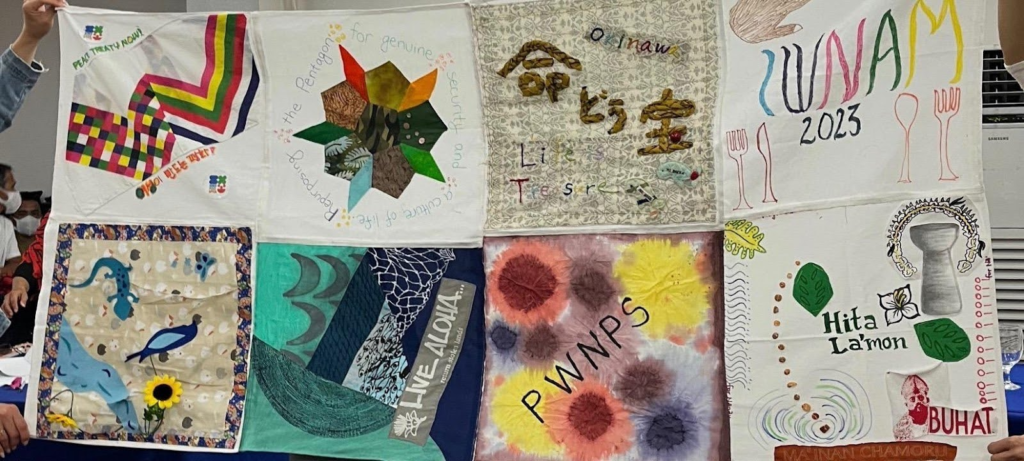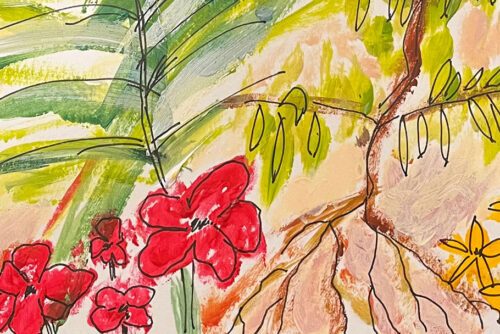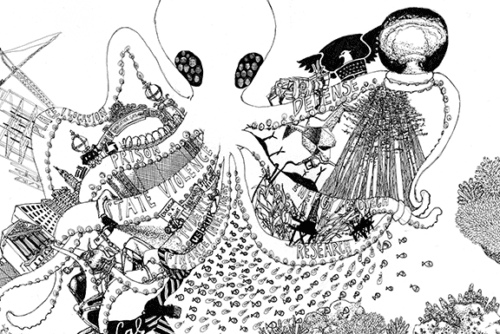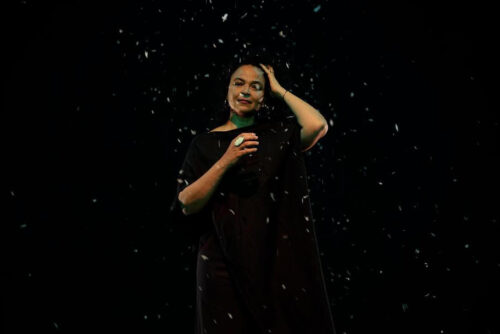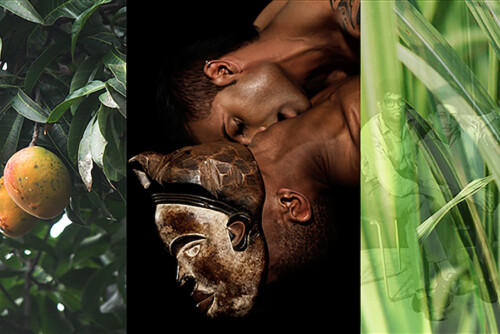The International Women’s Network Against Militarism (IWNAM) links grassroots activists and activist-scholars across the Asia Pacific region, advocating for feminist genuine security for people and the planet, not militarized state security. Collaborative, creative projects — drawings, quilts, banners, ceremonies, and online images — grow out of our work together. Through art and art-making, we express our views and feelings, communicate with others, and reach out to a broader community. The ongoing military build up by the United States and allied governments with contamination of land and water, violent displacement and disregard for local people, crimes of gender-based violence, and misuse of tax-payers’ money are all reasons for rage and despair. Our long-term connections, expressed in many acts of solidarity and love, also create hope and joy.

Women in California and Okinawa made this map in 1998, drawing around their hands and reaching out across a tie-dyed Pacific Ocean. Okinawa women have taken this banner to many rallies and meetings since then. Created: Carolyn Francis and Gwyn Kirk.
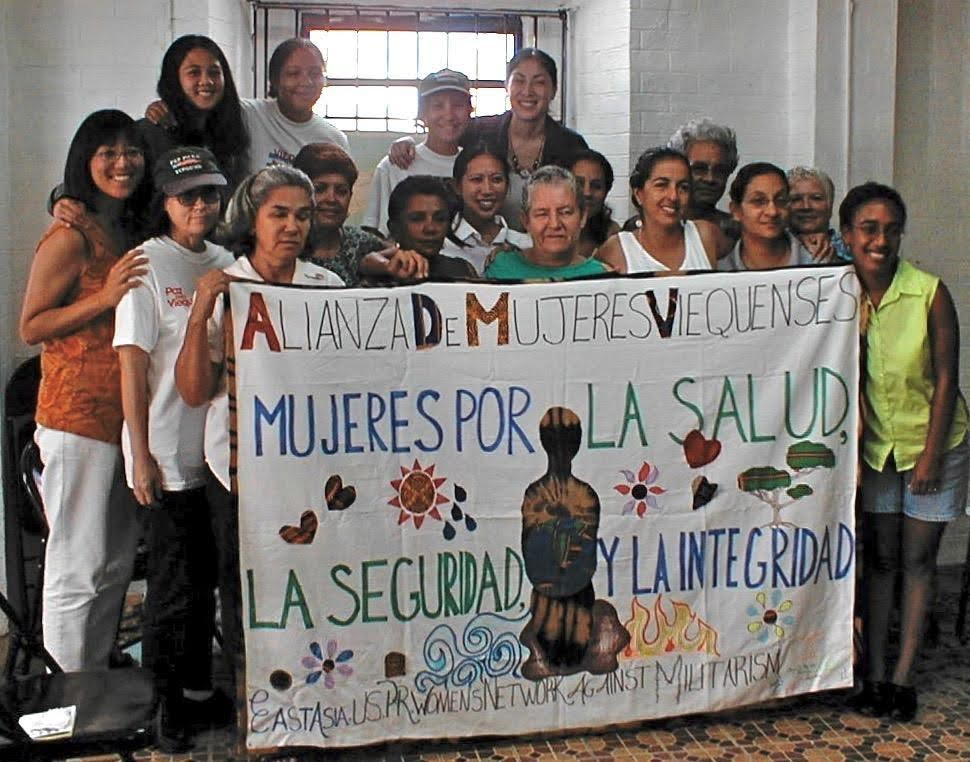
This banner was made in 2001 by women from the continental US on a solidarity visit to Vieques Women’s Alliance. They were involved in a major campaign, ultimately successful, to stop the US Navy’s live bombing training on Vieques, which had displaced residents from a-third of the island, littered the land with unexploded munitions and other military trash, and contaminated land, water, and ocean. Severe environmental damage, cancers, and leukemia are among its terrible legacies left to the local community.
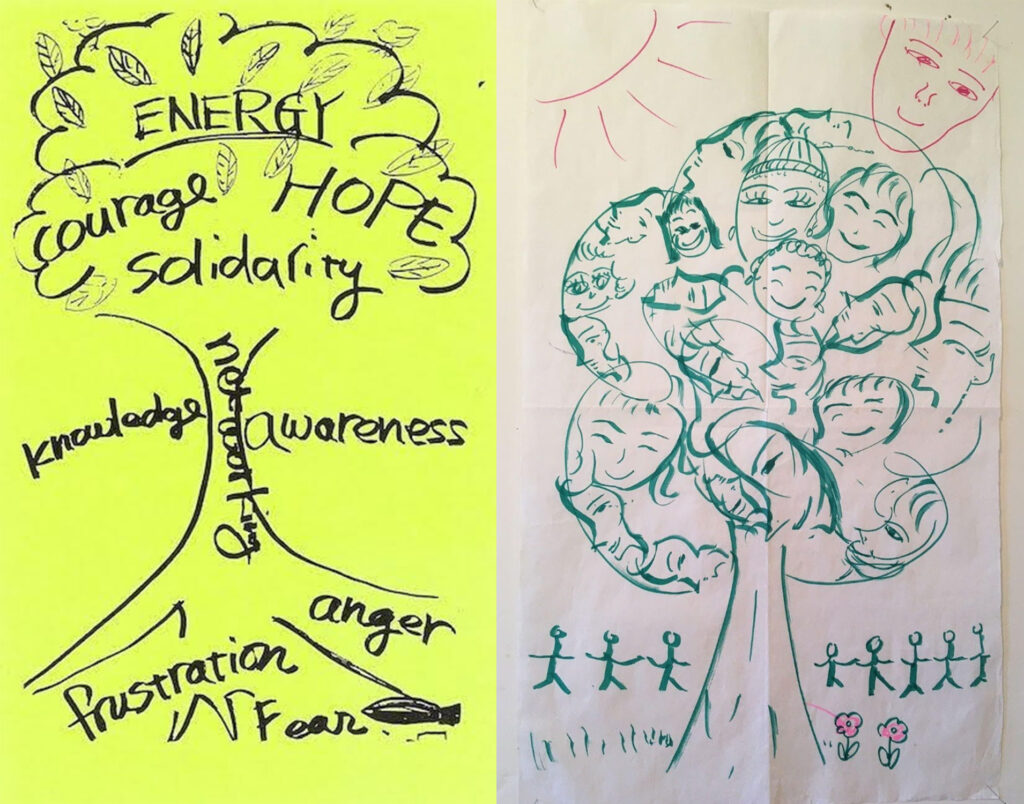
At international meetings we often make drawings in small groups to express feelings, concepts, or points of view.
Okinawan women drew these images at the Network’s second meeting in Washington, DC. 1998.
The image on the right was made into a card.
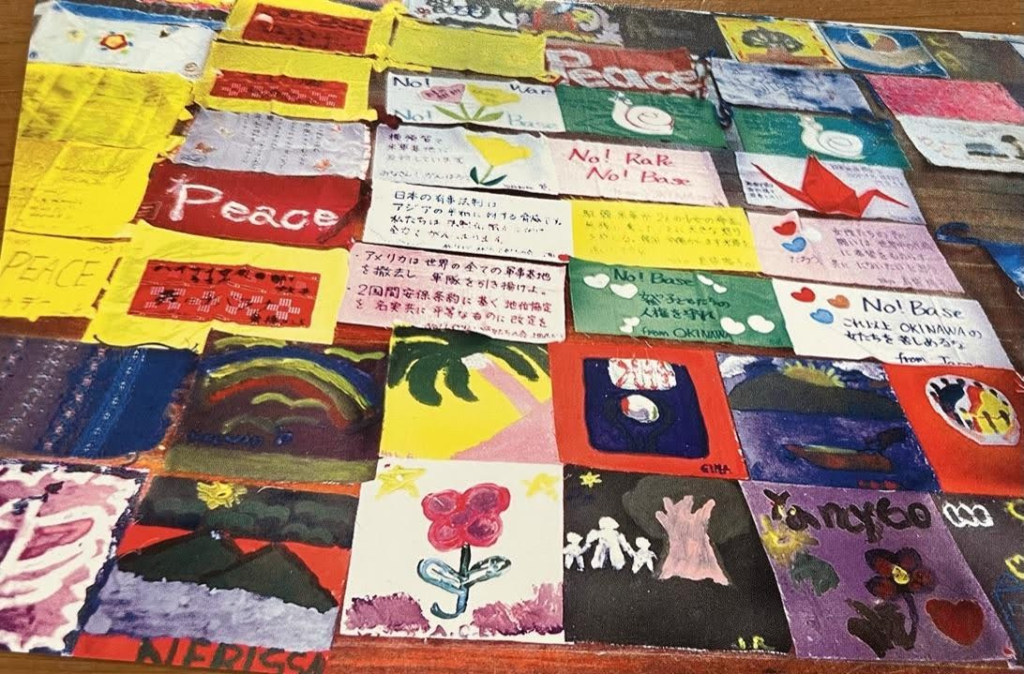
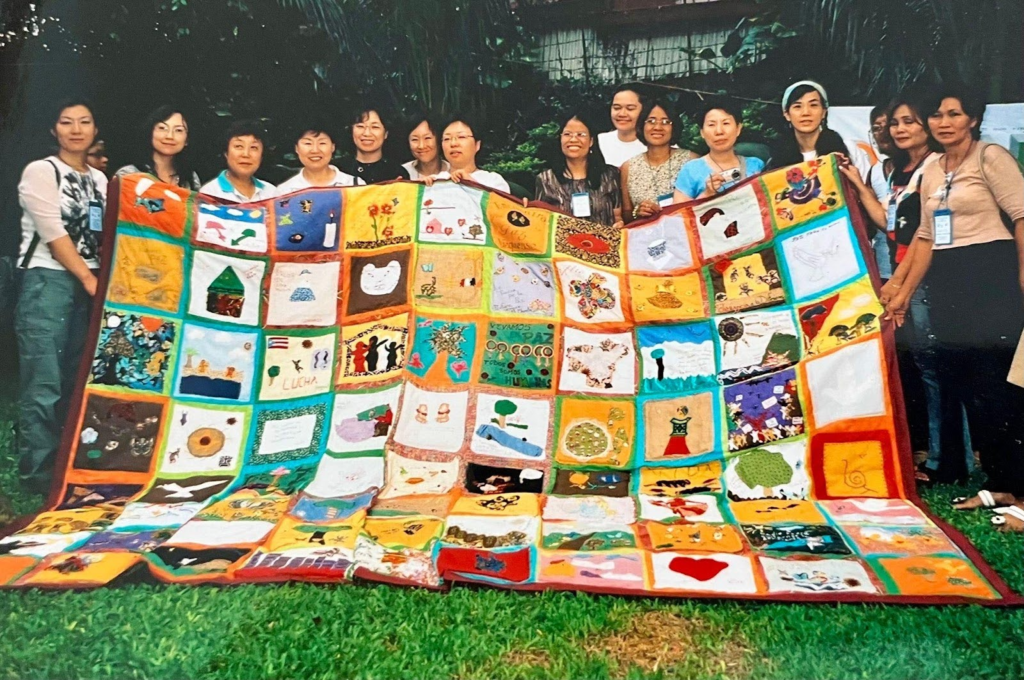
2002 4th international meeting in South Korea. Participants decorated small squares of cloth with paint and markers for the hosts to assemble after the gathering.
Photo: Don Mee Choi.
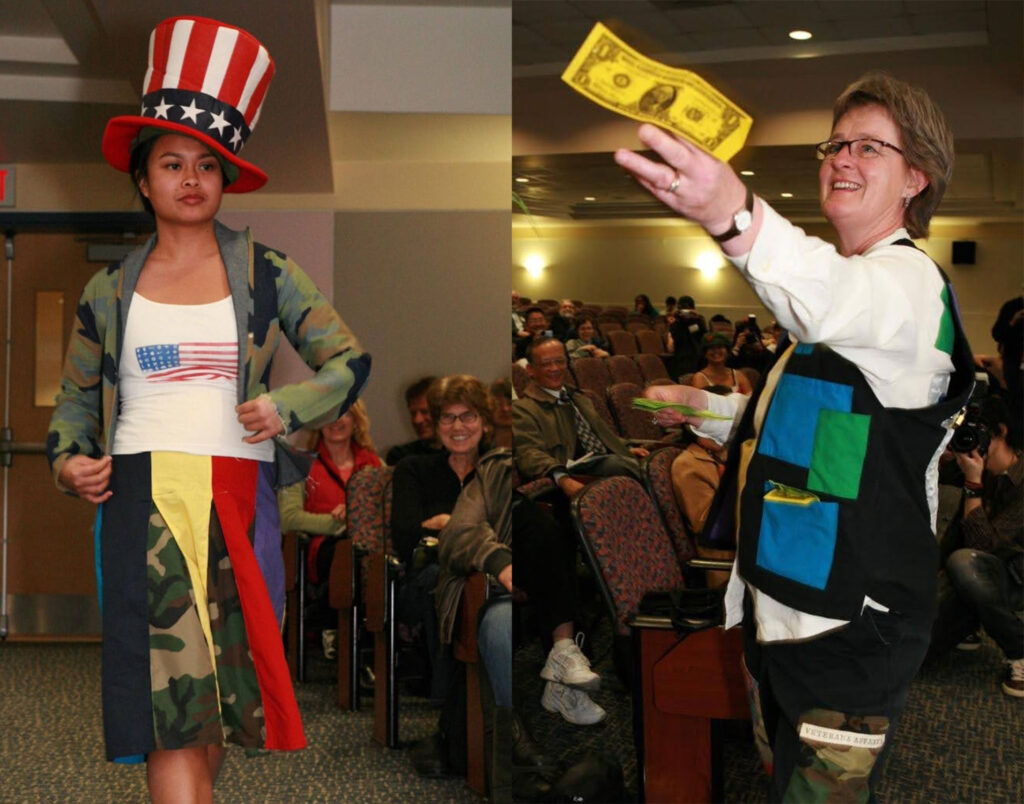
From “Fashioning Resistance to Militarism,” one of a number of fashion shows in San Francisco, Hawai’i, and Guåhan. Here a network member models at the “No Bases Conference,” Washington, DC, 2009. A three-piece outfit, where camo represents US military money, the corporate flag indicates profits made by Pentagon contractors, and Uncle Sam’s hat hides more money financing wars.
Model: Ellen-Rae Cachola.
Outfit: Christine Ahn and Sarah Shanley.
Photo: Ariceli Curiel.
Figure 7 (right). PEOPLE’S BUDGET
From “Fashioning Resistance to Militarism,” one of a number of fashion shows in San Francisco, Hawai’i, and Guåhan. Here a network member models at the “No Bases Conference,” Washington, DC, 2009. This three-piece outfit with many pockets has money for college, health care, renewable energy, good public transit, affordable homes, social security, retraining, environmental clean-up, care for everyone who needs care, and still more.
Model: Sandra Schwartz.
Outfit: Gwyn Kirk.
Photo Ariceli Curiel.
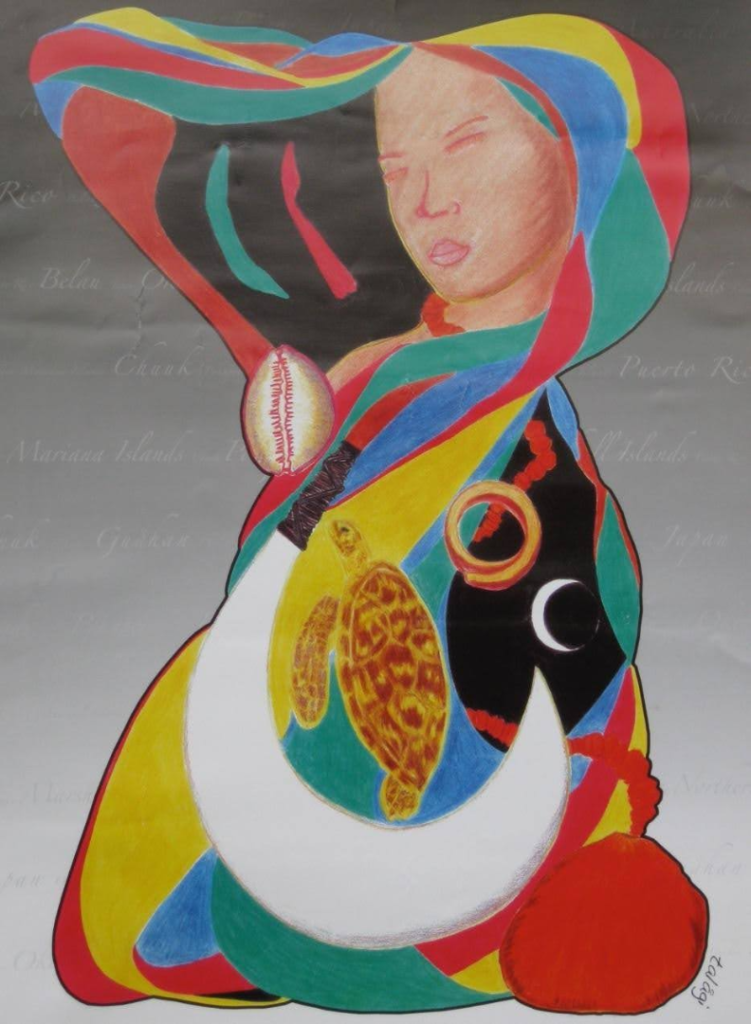
Poster image created for the international meeting in Guåhan (Guam), 2009, by Fanai Castro.
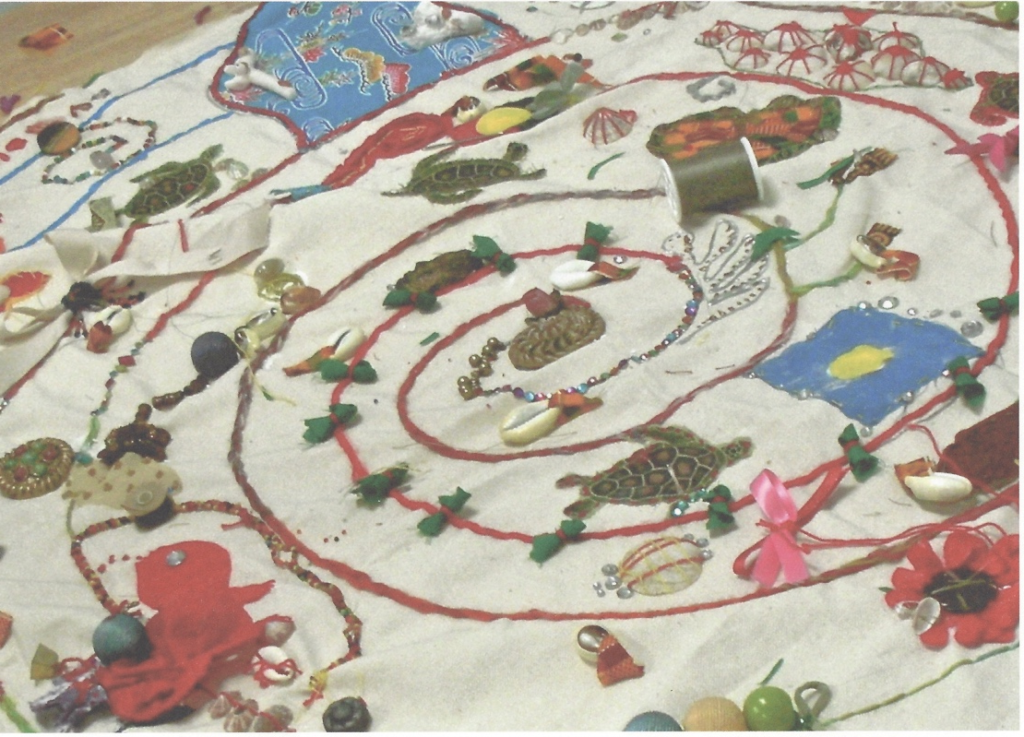
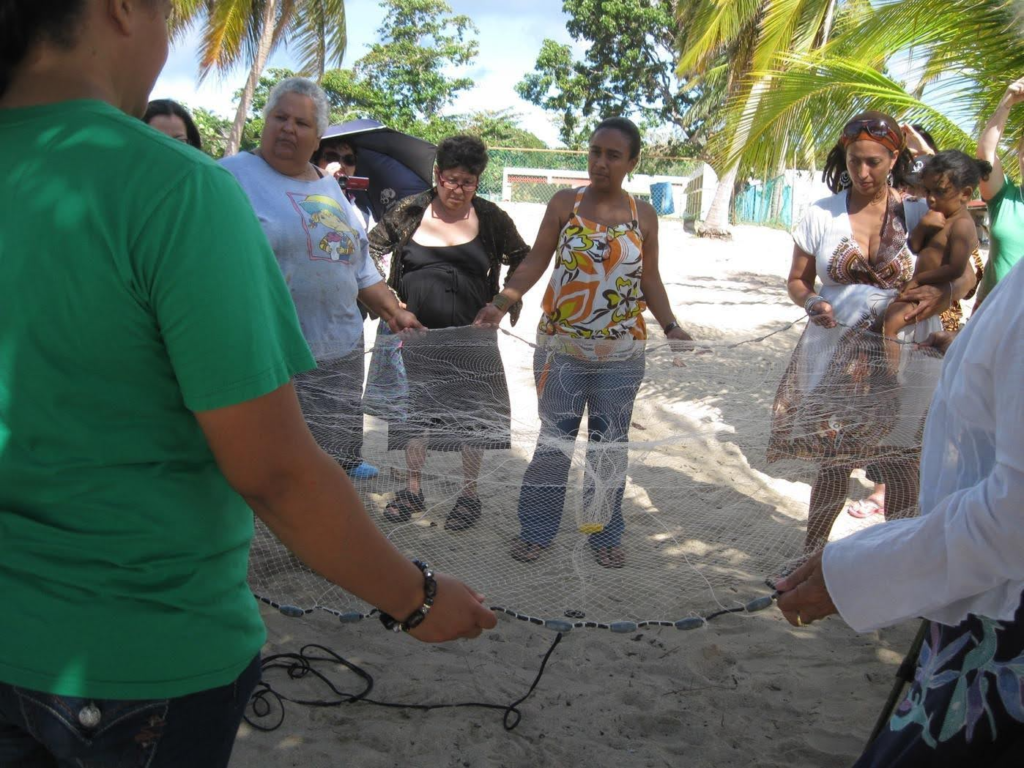
FORGING NETS FOR DEMILITARIZATION AND GENUINE SECURITY
2012 8th Network meeting in Puerto Rico. Ceremony at the beach, Vieques, with fishing net. Design: Maria Reinat Pumarejo and Vieques Women’s Alliance
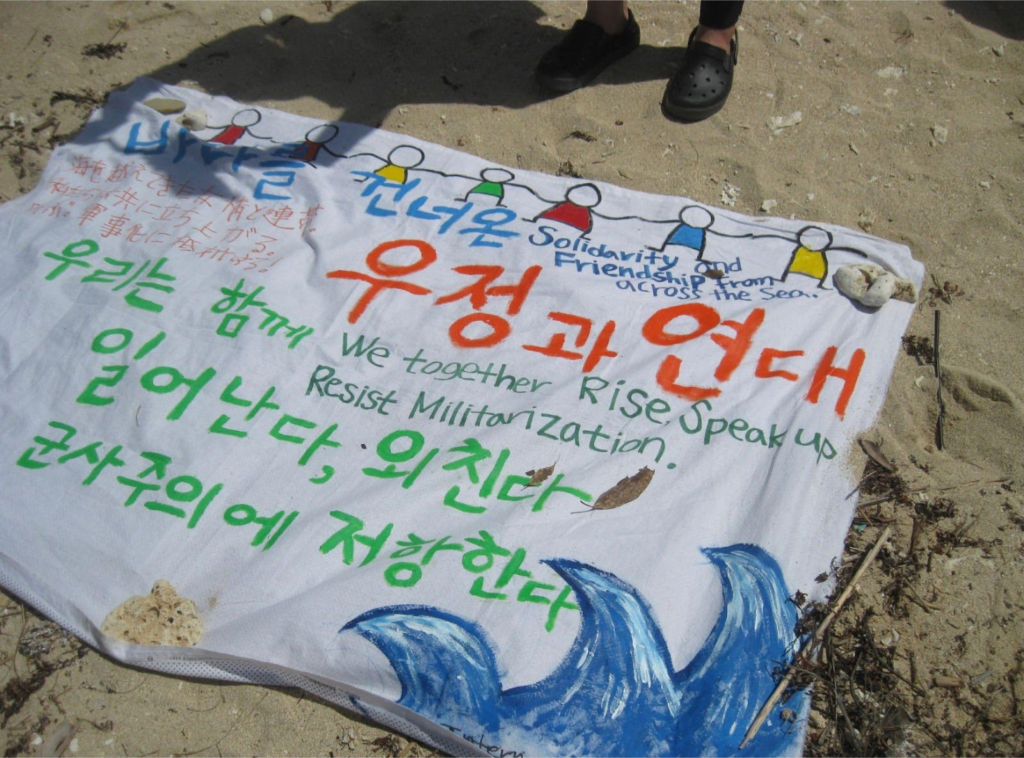
Banner made by Korean women for a public protest against US base expansion at Henoko, Okinawa, 2017. Fabric markers on cotton cloth. Photo: Gwyn Kirk
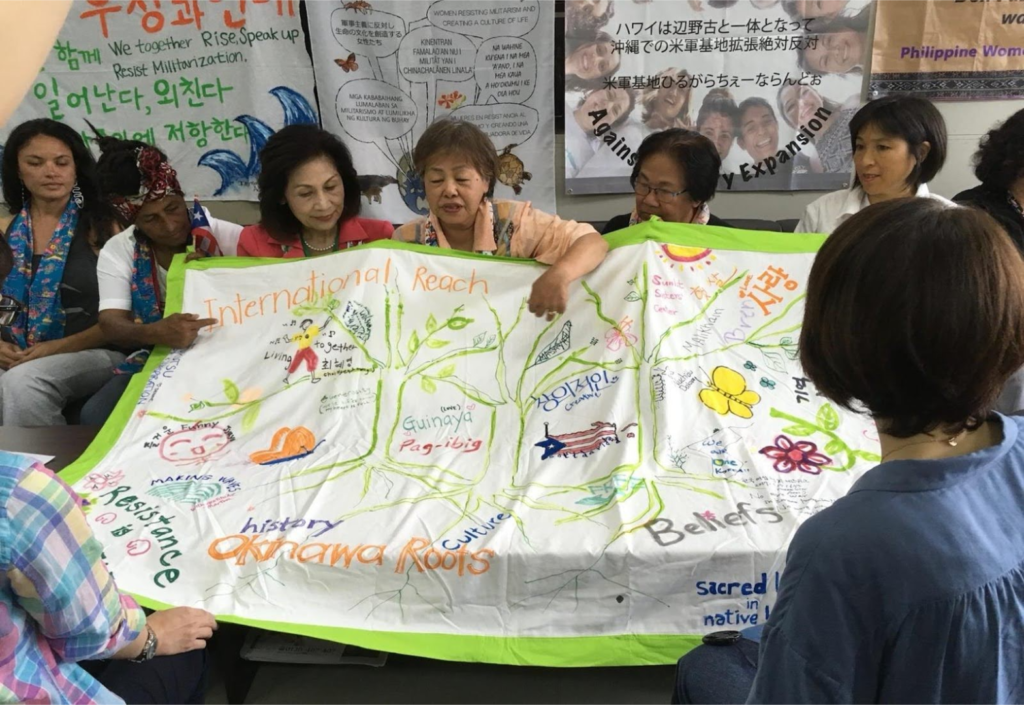
Banner made by Network members at the 2017 meeting to thank Okinawa women, the hosts, and to recognize their long-standing, far-reaching activism. Fabric markers on cotton cloth.
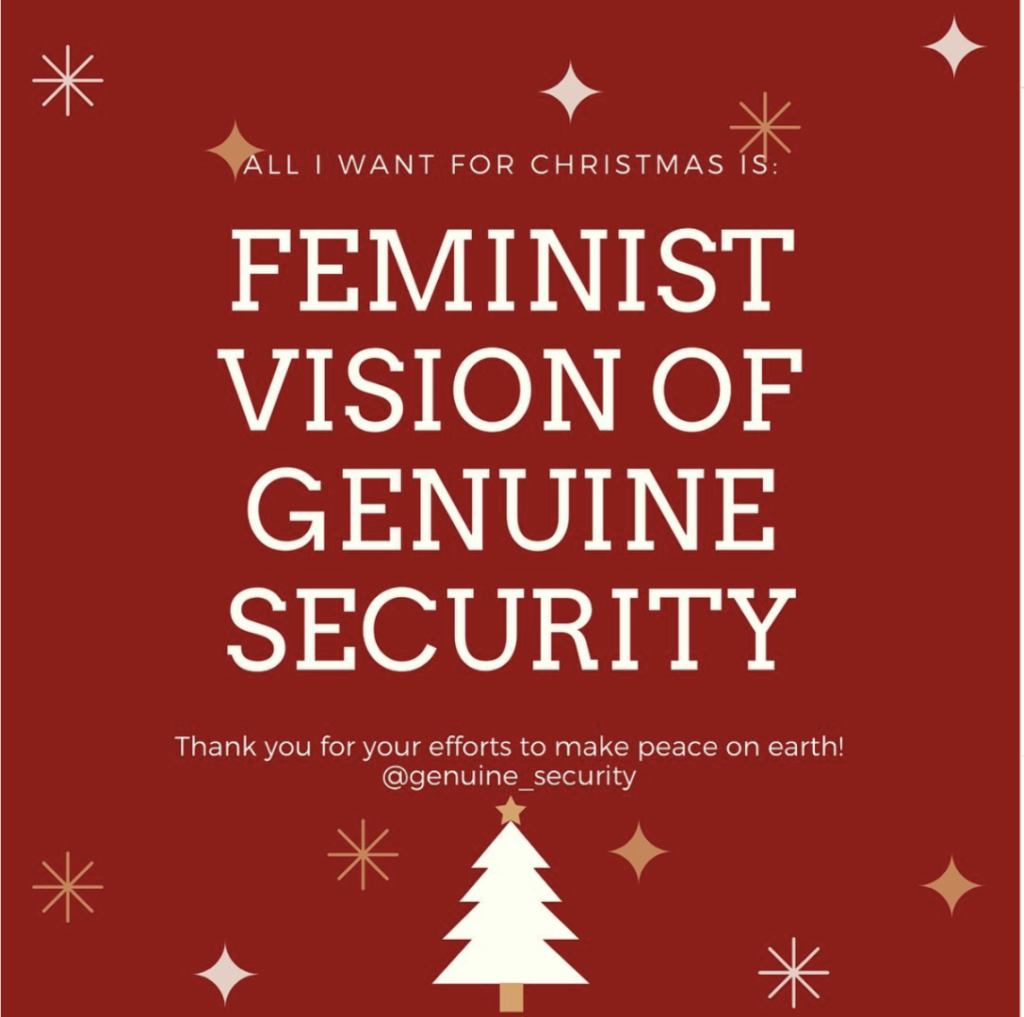
One of a series of 17 on Instagram, December 2021.
Designed and created: Kim Compoc, with contributions from Network member groups.
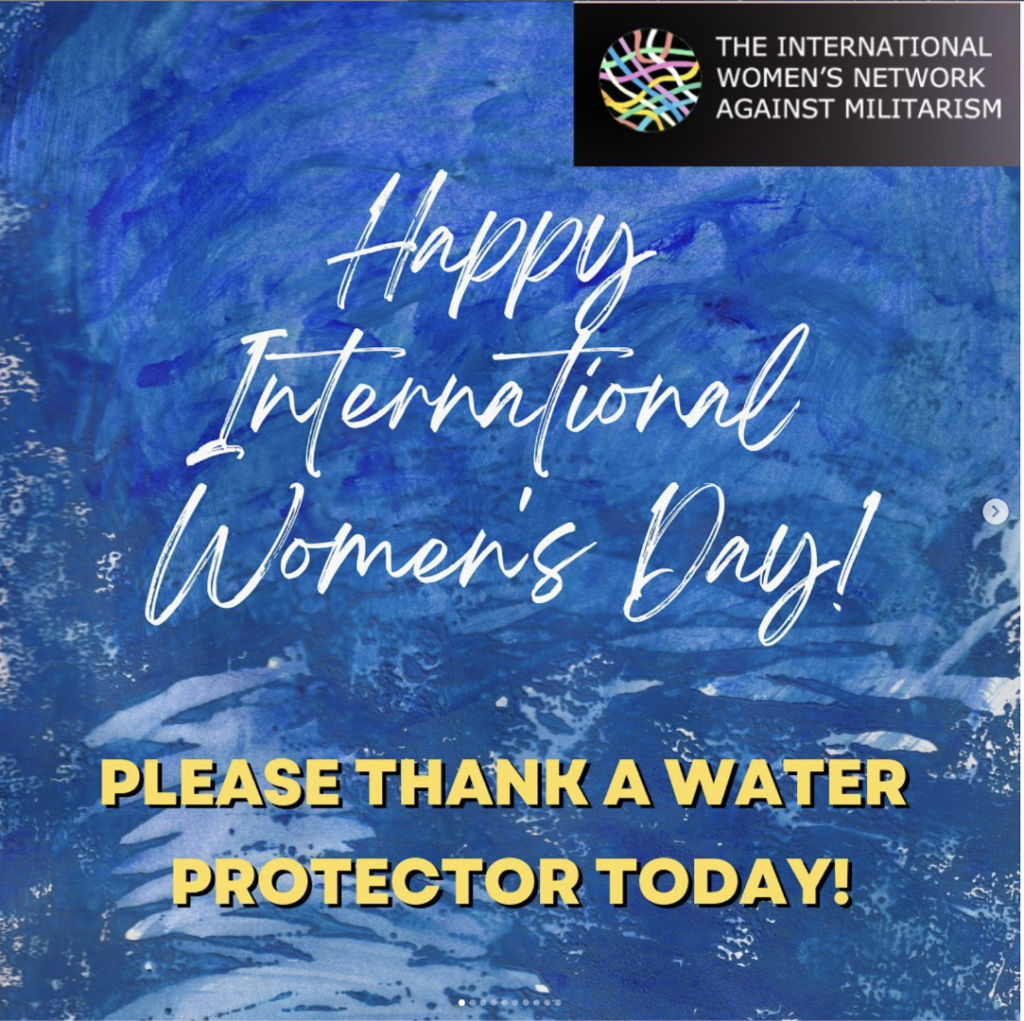
One of a series of 9 in 2022 to link International Women’s Day (March 8) with World War Day (March 22) to show women’s protests against military contamination of drinking water and of the ocean.
Designed and created: Kim Compoc, with text and video from Network member groups.
